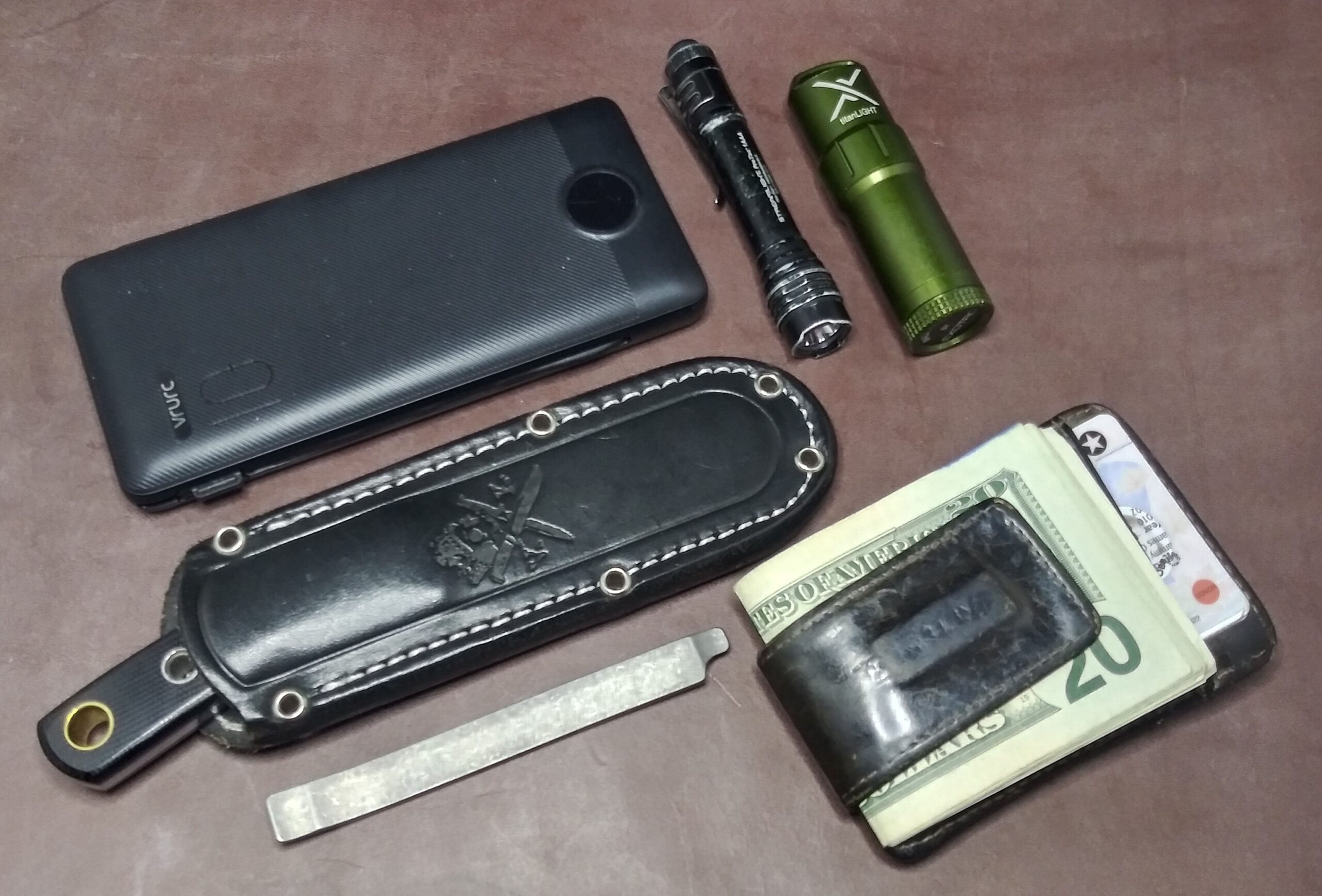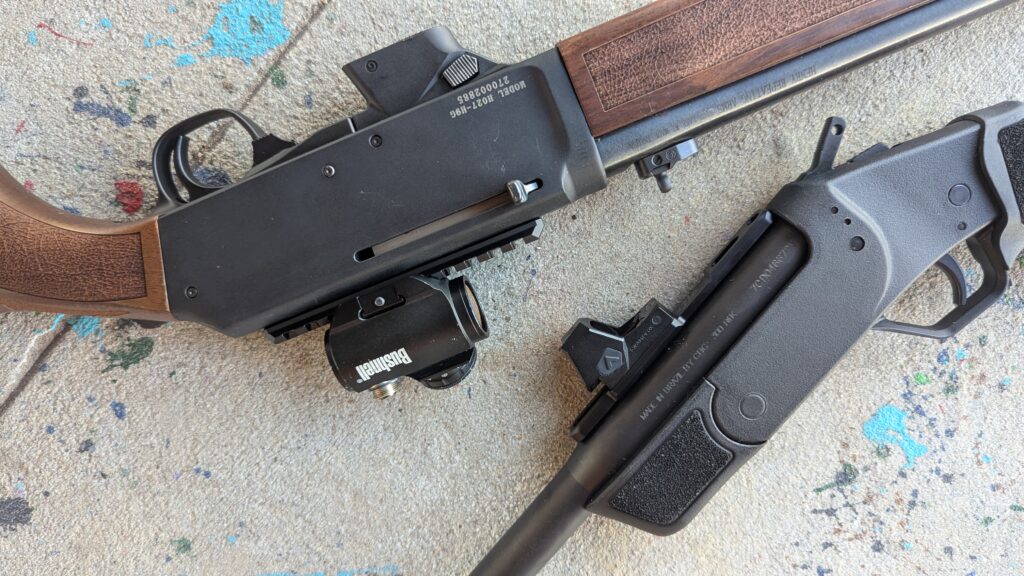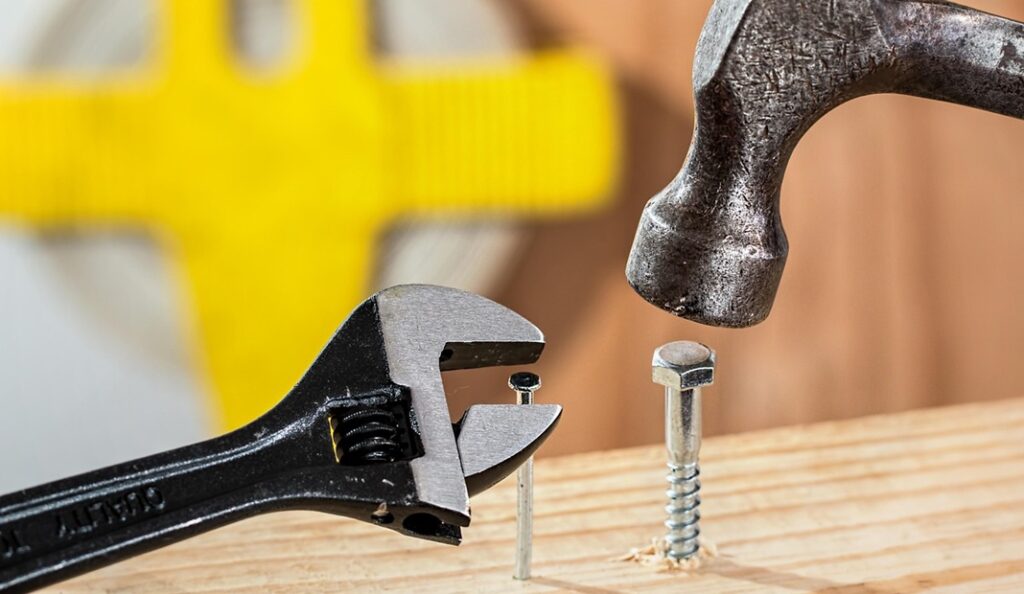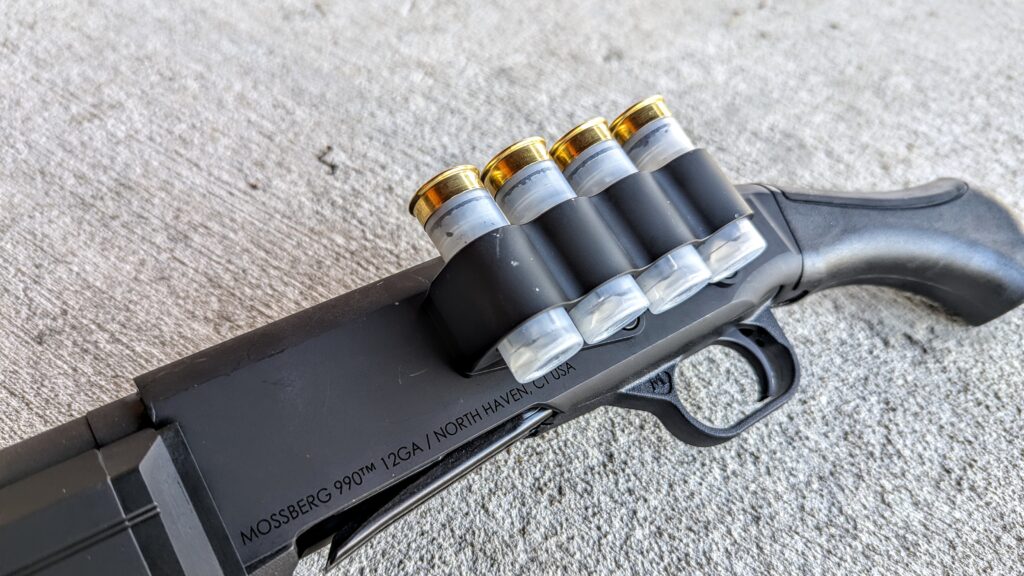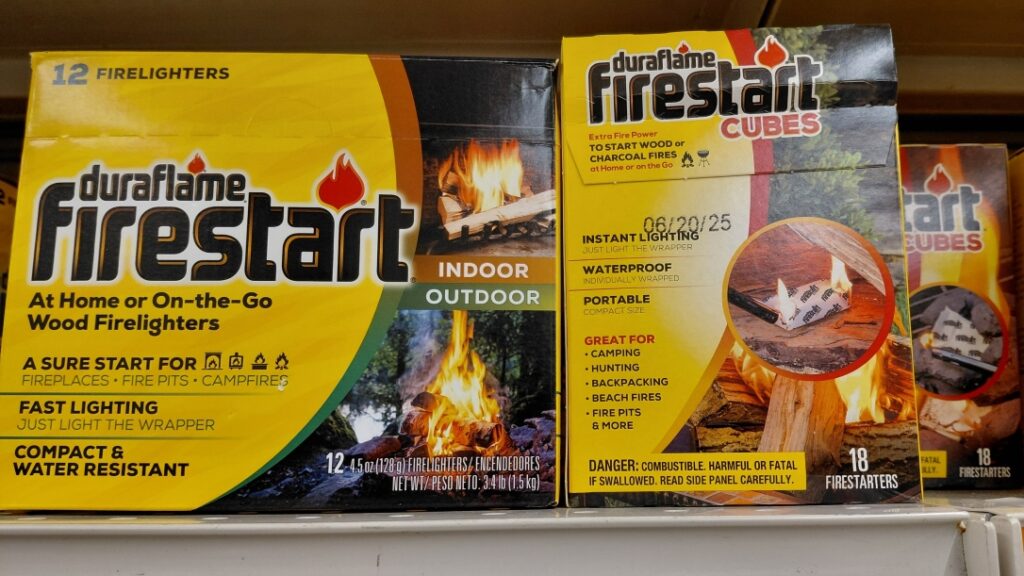EDC, or everyday carry for those not familiar with the lingo, refers to what you keep close at hand as you go about your day. For some, it has a very strict connotation in that it is limited to the gear you have literally on your body at all times. They take the “carry” part of EDC quite literally. And that’s okay, to each their own.
However, I look at it more broadly. I like EDC layers, at least three of them. Here’s how I break it down.
On Body EDC
This EDC layer consists of what you keep on your belt, in your pockets, or wear in some other fashion. For a lot of us, this includes things like a knife, pocket flashlight, defense weapon, wallet, and cell phone.
Advertisement — Continue Reading Below
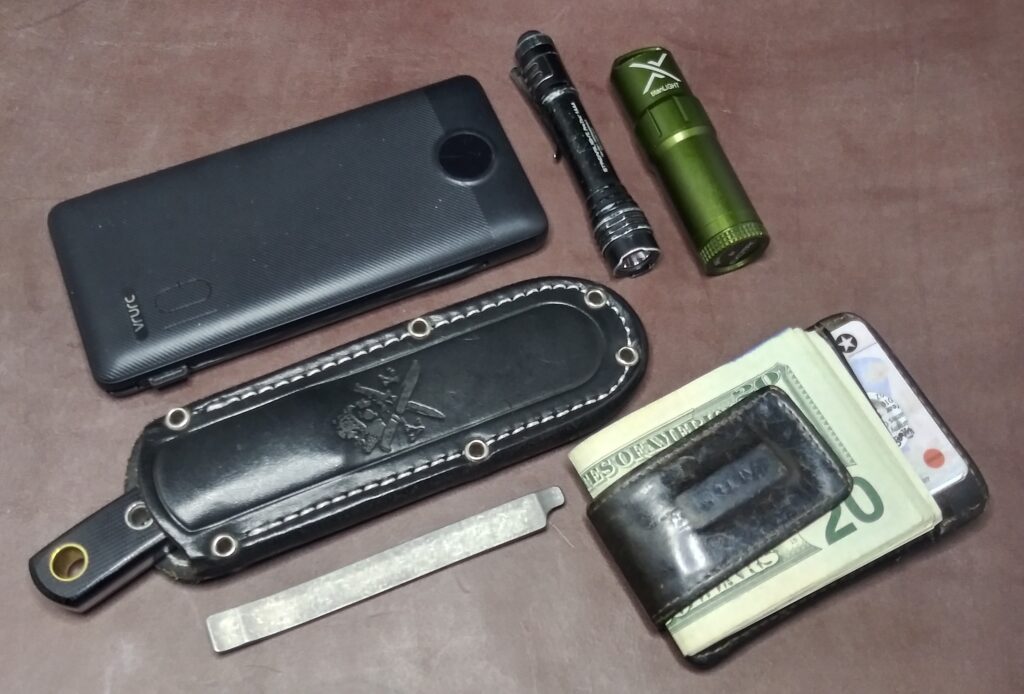
Some might add a few more items, such as a tourniquet, pocket pry bar, and/or a multi-tool, depending on their individual needs. And that right there is the crux of EDC layers—base your carry on what you truly need, or might need, throughout the day.
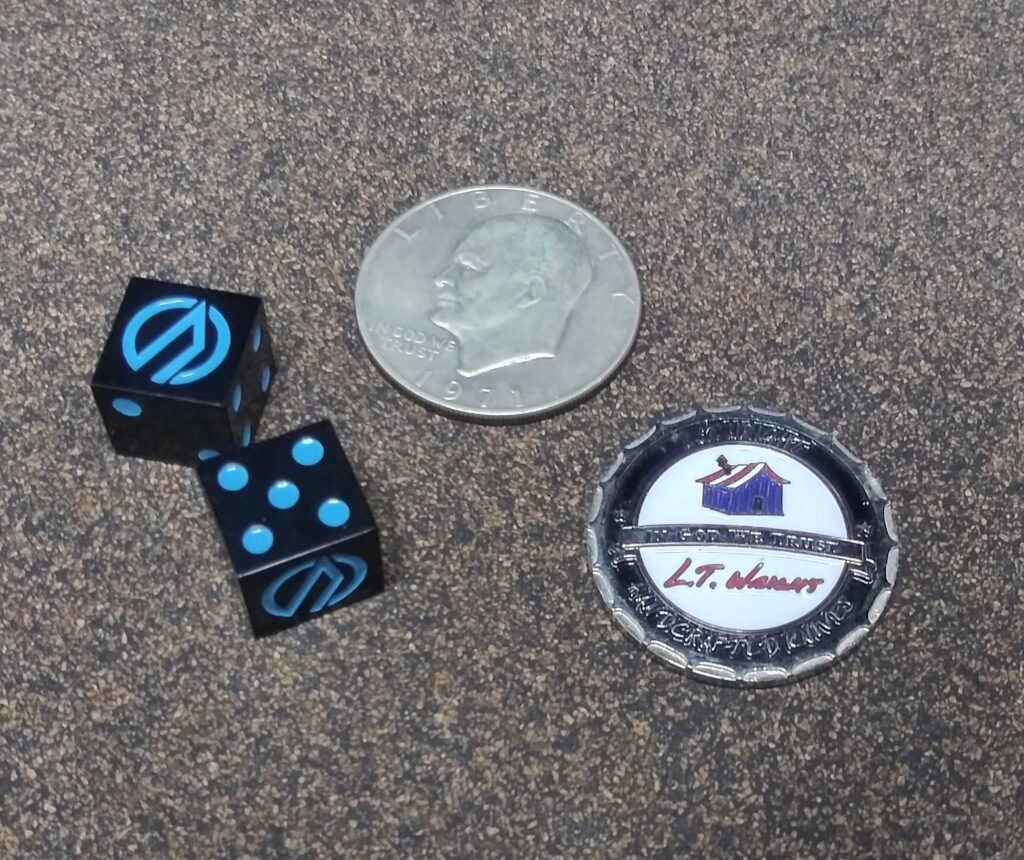
Advertisement — Continue Reading Below
Off Body EDC
Many of us routinely use some sort of bag, satchel, or pack to carry work-related gear. This might include a laptop or tablet, files, and such. To me, it just makes sense to also keep additional EDC items in such a bag.
Some things that I typically keep in my EDC bag include:
- Fully charged power bank
- Small tool kit
- Spare flashlight
- Pill organizer with OTC meds (ibuprofen, pink bismuth tablets, antacids)
- First aid kit
- Lighter
- Notepad and writing utensils
- Tooth flossers
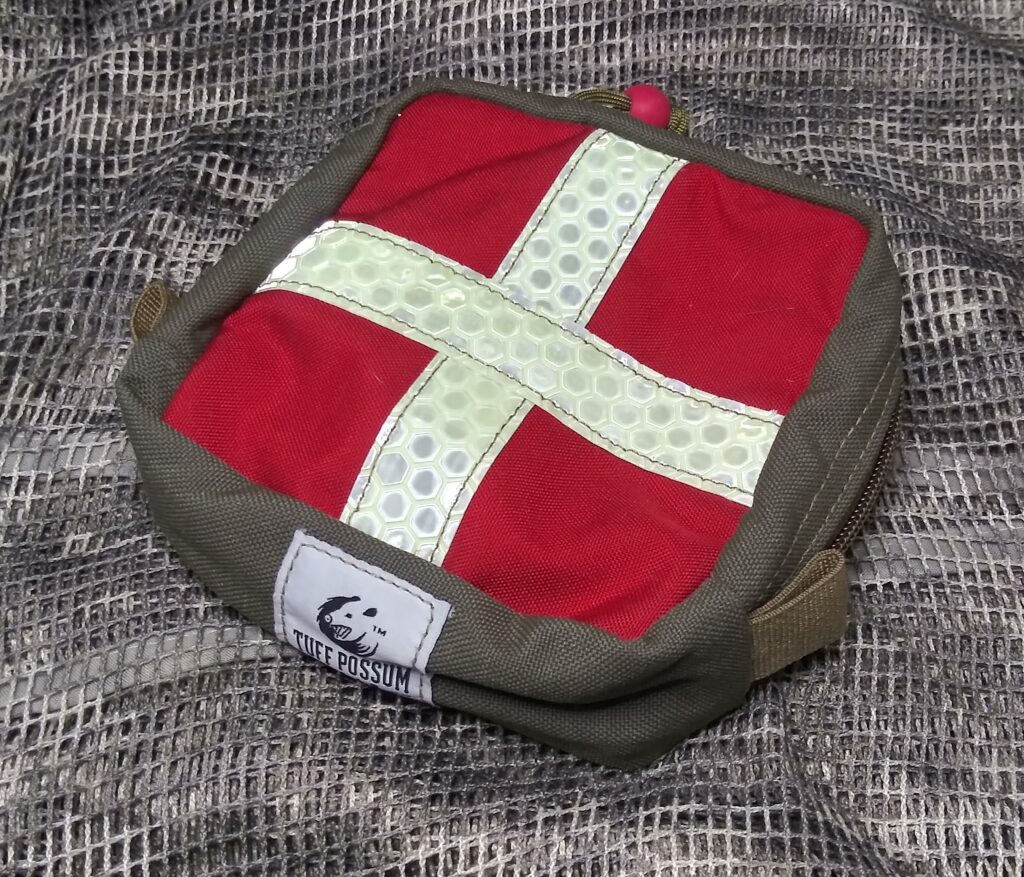
Advertisement — Continue Reading Below
I may also toss in some small snacks, like crackers or hard candy. Just a little something for a quick pick-me-up during a long afternoon. The nice thing about this EDC layer is that it is infinitely customizable. Adjust it on a daily basis depending on what you have planned.
Vehicle EDC
While not everyone has a vehicle, those who do would do well to add this EDC layer to the overall gear loadout. As with the previous two layers, the gear should reflect your likely needs. That said, there are a few things that are common sense.
When I worked outside the home, I kept a small backpack in the trunk that contained a spare set of clothes. If I spilled something on my shirt, got dirty changing a tire, or whatever, I had something I could change into if needed.
Advertisement — Continue Reading Below
I grew up in the upper Midwest. When you got your first car, which back then was likely just a beater with a heater, two things immediately went into the trunk. Your dad would give you a set of old jumper cables, and your mom would give you an old blanket or comforter. A few decades later, I still keep those items handy.
Here are a few other nice-to-haves in the vehicle EDC layer. Granted, this gets more into what we’d call a vehicle emergency kit, but there’s considerable overlap between EDC gear and emergency gear.
- A set of spare clothes
- Extra knit hat and winter gloves
- Basic tool kit
- Jump starter
- Jug of potable water
- Folding shovel
At the end of the day, don’t look at EDC as a checklist, where you absolutely must have certain items. Instead, look for items that will serve to make your life easier throughout the day. After all, that’s really what EDC is all about. Use the EDC layers concept to distribute your gear, so that it’s easier to carry everything you need.
Advertisement — Continue Reading Below
